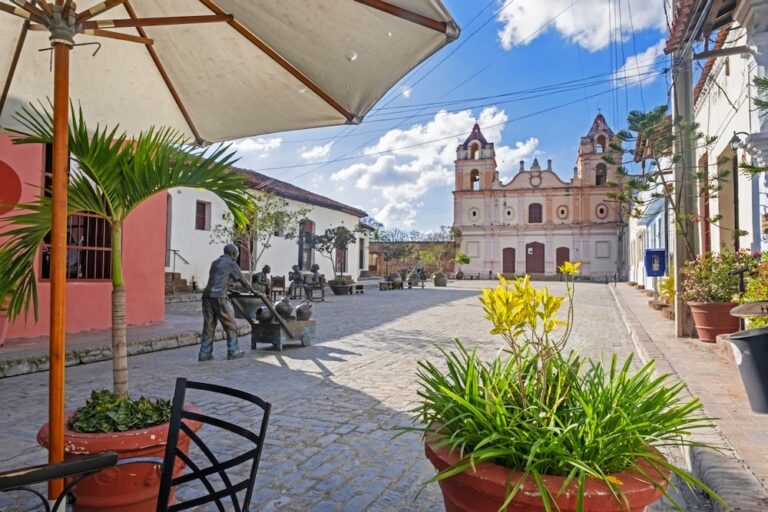(RSF/IFEX) – RSF is concerned about the health and safety of Cuba’s imprisoned journalists, especially Normando Hernández González, the editor of the Colegio de Periodistas Independientes de Camagüey, an independent news agency, who is still waiting for the special medical release his wife requested for him a year ago because of his poor health. This […]
(RSF/IFEX) – RSF is concerned about the health and safety of Cuba’s imprisoned journalists, especially Normando Hernández González, the editor of the Colegio de Periodistas Independientes de Camagüey, an independent news agency, who is still waiting for the special medical release his wife requested for him a year ago because of his poor health.
This concern is heightened by the news of the death on 24 June 2007 of 47-year-old dissident Manuel Acosta in Cienfuegos provincial prison, in the centre of the country, where he had been held for three days for “pre-criminal dangerousness.” The authorities said he killed himself.
“How long do the Cuban authorities plan to keep people in prison for working as journalists whose state of health has become incompatible with imprisonment?,” RSF asked. “Are they waiting for Hernández to try to take his own life before finally giving him the special release on health grounds that he has been demanding for the past year?”
RSF added: “Subjecting ailing people to such treatment, or rather lack of treatment, is to kill them slowly. The gesture we are waiting for from the authorities is not a political one. It is purely humanitarian. The dialogue which Spanish foreign minister Miguel Ángel Moratinos has begun with the Cuban government should focus on this emergency situation.”
The state of health of Hernández, who is serving a 25-year sentence imposed during the “Black Spring” crackdown of March 2003, is becoming more and more alarming, says his wife, Yaraí Reyes (see IFEX alerts of 3 July, 3 May, 16 March 2007, 18 December and 7 April 2006 and others). She found him in very poor shape when she visited him on 21 June 2007. He weighed just 53 kilos. His ailments include severe intestinal problems that prevent him eating normally. He also has tuberculosis for which he is not getting the necessary treatment. He has refused to eat several times since 4 March. Reyes requested a special medical release permit on his behalf on 7 July 2006, without success.
Pedro Argüelles Morán, a journalist serving a 20-year prison sentence, went on hunger strike on 16 June for the right to have the medicines which his family bring him. He was arrested in 2003 at his home in the central city of Ciego de Ávila, where he ran the Cooperativa Avileña de Periodistas Independientes (CAPI), a cooperative of independent journalists.
The prison authorities on the southwestern Isla de la Juventud have been refusing to give independent journalist Fabio Prieto Llorente the treatment he needs for serious pulmonary complications since 10 June. His family says he was hospitalised in May with acute pains in the chest and back and low blood pressure, but the authorities returned him to prison before he had completed all the necessary medical tests. Prieto Llorente, who is from Isla de la Juventud, has been serving a 20-year sentence since the “Black Spring.”
José Ubaldo Izquierdo Hernández of the Grupo de Trabajo Decoro news agency is currently in Guanajay prison in Havana province, where he is serving a 16-year sentence imposed in 2003. He is in very poor health and was hospitalised for two weeks in February 2007 for circulation problems that caused severe cramping. The doctors prescribed a strict diet that excluded the standard prison food. The prison authorities ignored their recommendation.
Independent journalist Víctor Rolando Arroyo Carmona has been waiting for months for a dentist to repair two broken teeth. After repeated requests, the prison authorities let him have a mouth X-ray but nothing else, his wife, Elsa González, said. He also has high blood pressure but the prison authorities claim they do not have a way to measure it. Arrested on 18 March 2003 at his home in the western city of Pinar del Río, Arroyo Carmona is serving a 26-year sentence (one of the longest imposed on a journalist).
The health of José Luis García Paneque, the head of Libertad, an independent news agency based in the eastern town of Las Tunas, has also deteriorated in prison. Held in Las Mangas, near his home town, he was taken to a hospital in Bayamo with severe abdominal pains in June and doctors reportedly found a kidney cyst. His weight has fallen from 86 to 50 kilos because of an intestinal ailment. He has been serving a 24-year sentence since 2003 (see alerts of 26 June 2007, 7 June 2006, 22 March 2005, 26 and 20 March 2003 and others)
Pablo Pacheco Avila, a journalist with the CAPI cooperative who has seen serving a 20-year sentence since April 2003, was returned to prison on 9 June 2006 after 52 days of intensive treatment in the Ciego de Ávila provincial hospital. He was hospitalised again on 26 April 2007 for surgery to his right knee (see alerts of 26 June 2007 and 1 December 2004).
Iván Hernández Carrillo, who is the correspondent in Colón (in Matanzas province) for the news agency Patria as well as being a political and trade union activist and, began a hunger strike on 25 June in “Guamajal Hombres” prison because he is being mistreated by his guards. He is serving a 25-year sentence.
Cuba’s prisons are currently holding 25 dissident journalists, 20 of whom were arrested during the “Black Spring” and were given sentences ranging from 14 to 27 years in jail. After China, Cuba has been the world’s second biggest prison for journalists since 2003.


